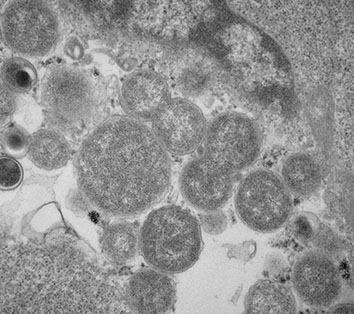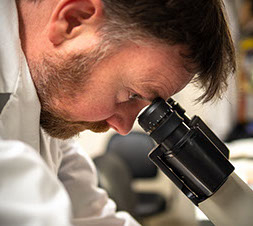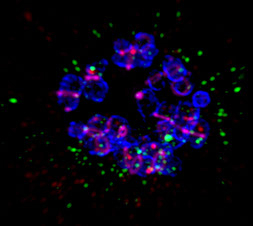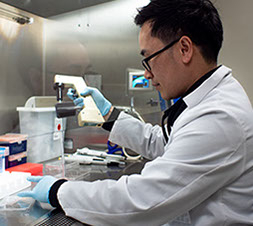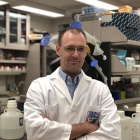The Problem
The Liechti Lab focuses on the molecular genetics of bacterial pathogenesis, specifically as it relates to host-adapted microbes. The two pathogens currently under investigation are Chlamydia trachomatis, the leading cause of infectious blindness and bacterial sexually transmitted disease in the world, and Borrelia burgdorferi, the causative agent of Lyme disease. Infections by these two microbes have significantly increased in the US population over the last decade. Military personnel and their families often bear a disproportionately high disease burden: infection rates in the US military have climbed to six times that of the country as a whole. As a result of their prolonged adaptation to humans and a general lack of knowledge about their basic physiology, no viable vaccines have been developed for either of these microbial pathogens.
Inside the Lab
Many microbial pathogens have co-evolved with humans for hundreds of thousands of years. In that time they have become well-adapted to life within our bodies, but they have also become reliant on us to carry out many basic, physiological processes. Investigating the molecular mechanisms underlying these processes can give us insight into the critical components required for them to function. How do these bacteria divide? What signals and molecular complexes are required for them to regulate their size and shape? What nutrients do they need from us and how are they able to obtain them? Understanding how host-adapted bacteria carry out basic, cellular processes is often the key to unlocking novel insights into what it takes for a pathogen to overcome our immune defenses and flourish within us. These adaptations can often be exploited to improve our ability to diagnose and subsequently treat infections. These same adaptations have also made studying these organisms technically challenging and very little is known about cellular organization, metabolism, and growth kinetics.
our Approach
As a result of their co-evolution with vertebrates, these bacterial species have become entirely dependent on multicellular organisms to survive and proliferate. The Liechti Lab uses a multidisciplinary approach to identify and characterize the mechanisms by which these pathogenic species carry out the basic microbial functions necessary to survive and proliferate within us, utilizing molecular genetics and biochemistry coupled with live-cell imaging and super-resolution microscopy. Our ongoing studies include the exploration of bacterial cell organization and how it affects cell division, cell size regulation, persistence, and pathogenesis.
“Military personnel and their families often bear a disproportionately high disease burden. Infection rates tend to be higher for servicemen and women than what is observed in the country as a whole."

